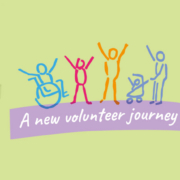COVID 19’S IMPACT ON VOLUNTEERING, COMMUNITIES AND THE ECONOMY BY CLAIRE SULLY
Before the new normal was normal – that is before March 23rd, 2020, when lockdown was announced – we would evangelise about the millions of volunteers. We would note the billions of pounds their work amounted to, if equated to an economic value. We would say:
• It is estimated that in the UK 20.1 million people volunteer to support activities, events and causes. 7 in 10 people, surveyed in 2019, reveal they volunteer.
• In 2015, volunteering was worth more than £22.6bn to the UK economy. This is equivalent to about 1.2% of GDP.
• 1 in 5 (22%) people formally volunteered regularly (at least once a month) in 2017/18 (11.9 million people).
• In 2017/18, 53% of people informally volunteered at least once, and 27% of people took part in informal volunteering regularly.
It’s clear from these incredible stats that we are part of nation of doers and givers (of our time) and how- if this natural resource of people doing good together is part of a national strategy – just imagine… yes, just imagine. Then Covid 19 came and everything stopped and organisations closed and many organisations furloughed their teams. Volunteers were at home.
Now we have a major challenge in sustaining our heritage organisations and charities, keeping volunteering going and making it safe for volunteers.
Research confirms that those volunteering in the last 12 months participate in formal volunteering at least once a month, are more likely to be older, well-educated and from higher socio-economic groups. All generations are affected by Covid 19, but if a primary volunteer demographic is affected by social distancing it makes the drive to diversify volunteering even more important.
With an aging society and Covid 19 disruption, it is extremely important we sustain, value, diversify and innovate volunteering. This will not only sustain current levels of volunteering, it will open-up public participation to wider demographic profiles, benefiting health and well-being, local health systems and the economy.
Feeling connected lies at the core of the volunteer experience.
Tickbox’s Tech for Good product: Volunteer Makers enable “Connected Communities”. This creates greater numbers of volunteers and bigger impacts. It brings to the fore remote and micro-volunteering and diversifies volunteering.
For 7 years, Tickbox Tech for Good products and national pilot training programmes have shown how enabling “connected communities” to be inspired is:
• A scalable model
• Cost-effective
• A means to help organisations adapt to disruption and economic shocks
• A way to diversify volunteering
Tickbox began operating in 2007 in Somerset and is now based in Bristol, we work with clients across the UK.
Our tech-driven engagement model (Volunteer Makers) helps heritage, arts, charity and community organisations navigate economic shocks, adapt to disruption and implement organisational change. Along with the tech we have evolved training tools and learning.
During lockdown our clients have launched and extended their community and volunteer engagement, because this engagement model and its digital tools work even in lockdown with social distancing.
Learn more about Volunteer Makers in lockdown:
Oldham show how to reach people – even in lockdown
Museum Makers repeat history in lockdown


